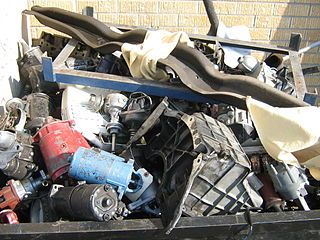Comparing Various Energy Resources with Infographics

The creator of this piece starts with coal, and points out that 714 pounds of coal are required to produce the same electrical energy as 0.035 pounds of uranium. (more…)

The creator of this piece starts with coal, and points out that 714 pounds of coal are required to produce the same electrical energy as 0.035 pounds of uranium. (more…)


Going green is about more than saving the environment. It also helps people lead more productive and healthy lives. This is also true in the office — your employees will work smarter and be happier when you go green. If this sounds appealing to you, take a look at these 5 tips for making your office environmentally friendly.
Set Up a Recycling Program
One of the easiest ways to go green in the office is to implement a recycling program. (more…)

Ways to Change
One of the key ways a company can change is to become more digital. (more…)
I had to laugh just now when I came across this article entitled: Yes, the Koch brothers really are that evil. To explain this sort of gallows humor, I need to mention that my mother and I speak frequently about the goings on in the world, and, as she is a regular reader of my blog, she notices that I often cover the Koch brothers in an unflattering light, as in this post last week. She asked me just the other day, “Oh, Craig, do you honestly believe they can really be that evil?”
I’ll just ask Mom to click on the link above and check it out for herself.


• There’s a bunch at stake here, in terms of the future of transportation
• The concept that cars from start-ups can be made and sold profitably really did stun the world, and continues to do so (more…)

How strong is their legal case against the usurper? I have no idea.

Having said that, we need to acknowledge that it’s hard to imagine a world composed of 200 sovereign nations working together toward a vast set of 53 different common goals in complete lockstep. Also, we need to keep in mind some of these are at odds with one another; a certain piece of land can’t be used for rhino habitat and agriculture. Interesting article.